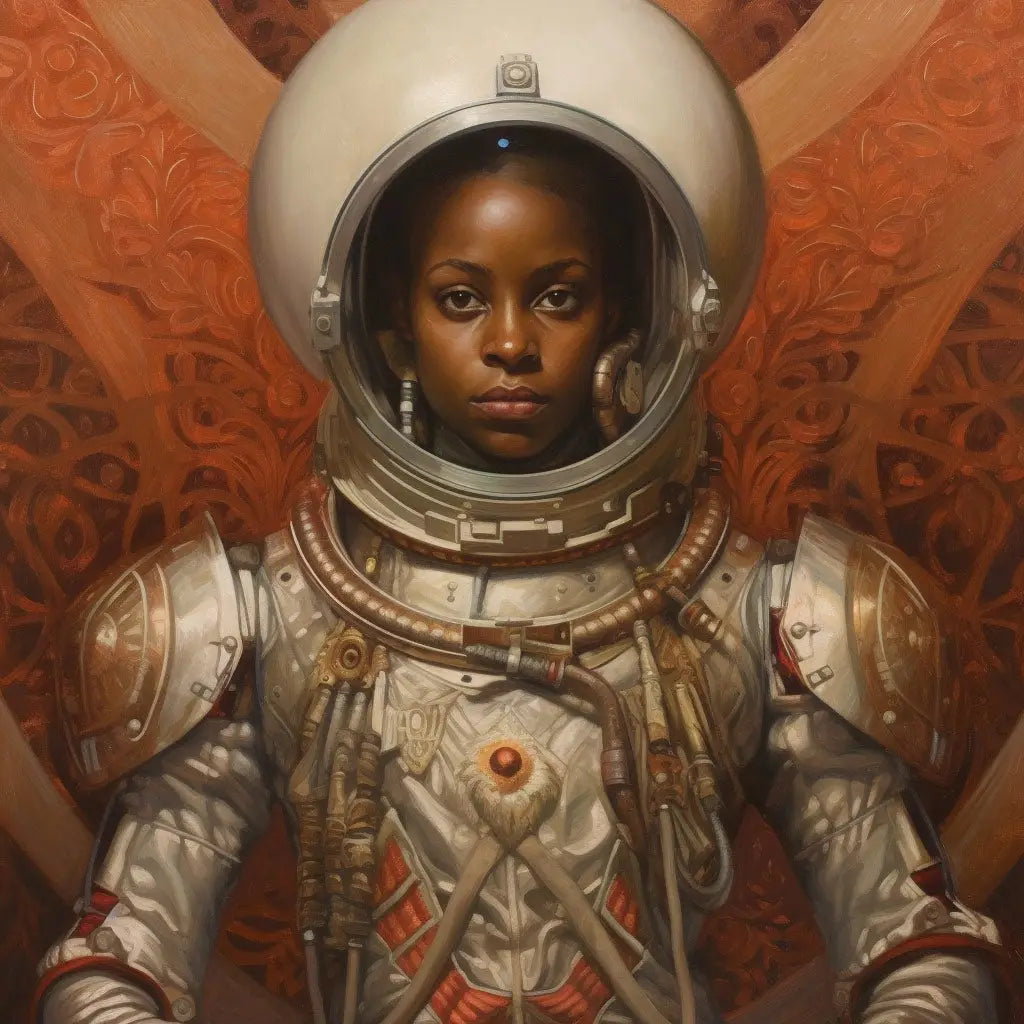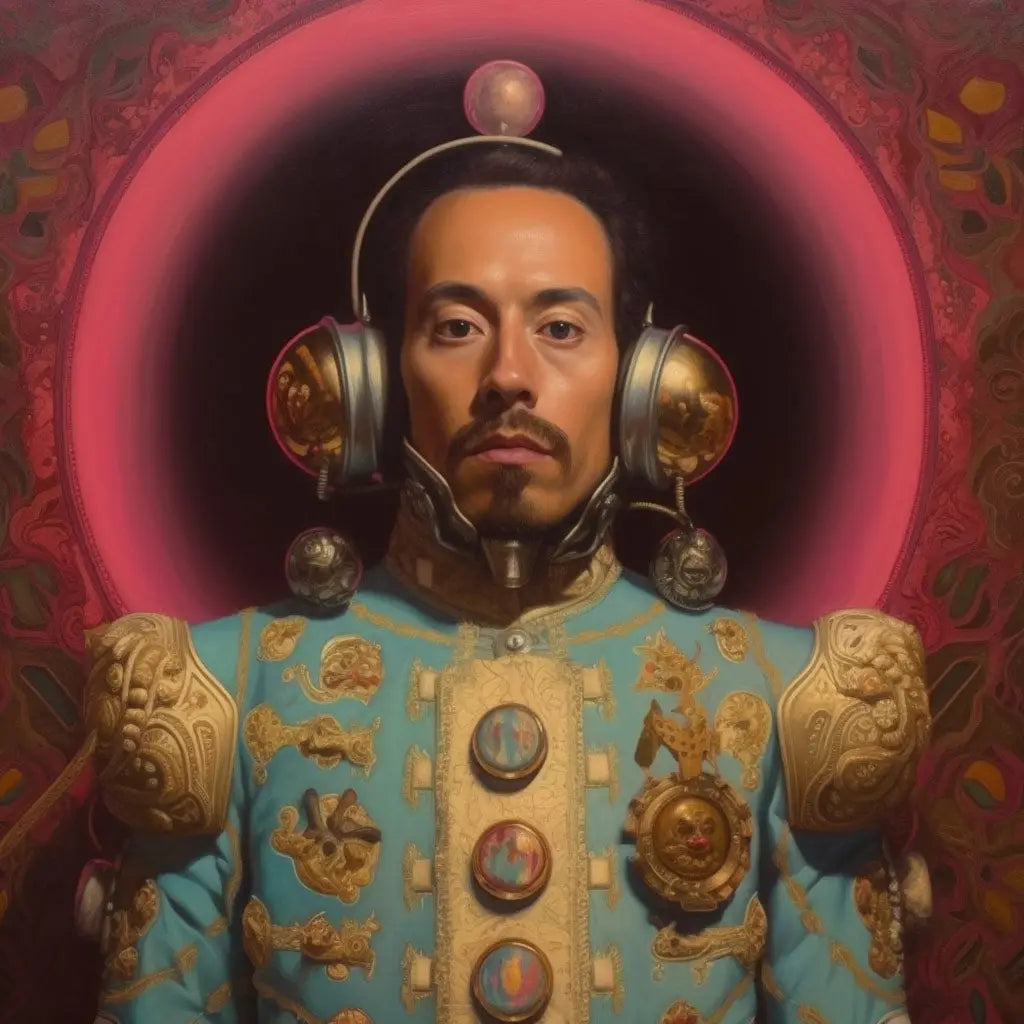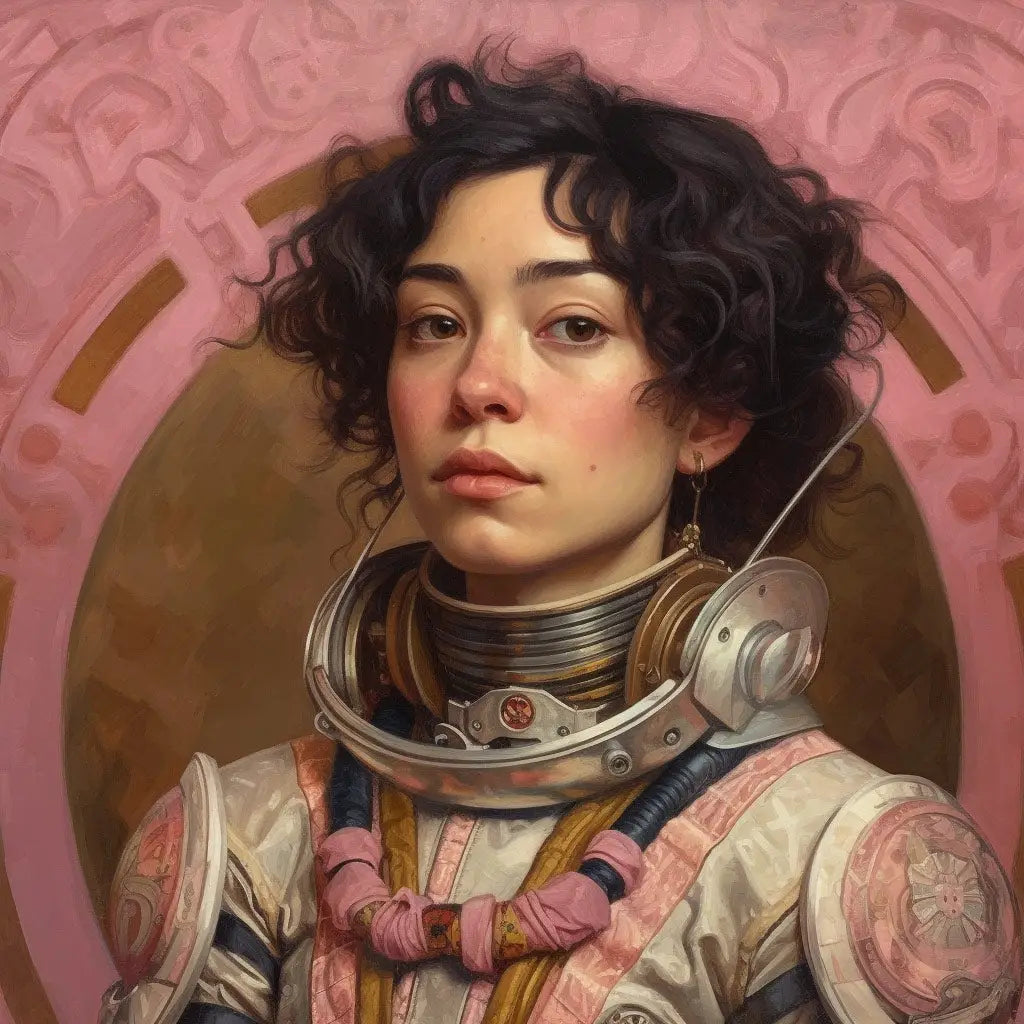Space exploration: it's not just the final frontier but a mirror reflecting our collective ambitions, curiosities, and, most importantly, our inclusivity. For too long, the narrative of who gets to explore the cosmos was narrowly defined, leaving LGBTQ+ pioneers in the shadows. But the tide is turning. The emergence of gay and lesbian astronauts in recent years isn't just a win for representation; it's a seismic shift in the story of human achievement.
The journey of LGBTQ+ astronauts is rewriting the script of space exploration. It's a testament to breaking barriers, not just in the stratosphere but within the fabric of space agencies themselves. These individuals are not mere participants; they're leading the charge in scientific innovation, embodying the diversity of thought and experience that propels humanity forward.
In this piece, we dive deep into the evolution of LGBTQ+ visibility in space. From the silent struggles to the loud triumphs, we'll explore how the inclusion of gay and lesbian astronauts paved the way by changing the face of space exploration. Enriching it with every step they took. For all of us — collectively. That's the biggest small thing there is, probably. A risk and reward and dedication that every space explorer is (quite possibly) destined to do. I mean... would you? Could you?
Contributions to humanity this immense are no small thing — people out there, in the cosmos. Just a touch, but it's pretty big! Immensity comes in all shapes and sizes, just ask teeny-weeny black holes. Hoovering up the universe as they grow... but I digress, because let's face it, who among us could even fathom the contribution and courage that astronauts are born to do, if you ask me. Now to mention endurance, which is where I fall down — most likely you, too. Don't take it personally. Some of us just aren't built for... that much scope and commitment, frankly, but on with the story — wait, back to the facts! From the not so long ago up to here and now...
We'll also be examining the concerted efforts by space agencies to champion diversity and the ongoing journey towards a space community where everyone has a seat at the table. Through the lens of individual stories, we'll celebrate the diversity and resilience of LGBTQ+ astronauts. Their contributions go beyond their missions; they inspire future generations to dream big, regardless of their background or identity.
Join us as we navigate the expanding universe of inclusivity in space. This isn't just about acknowledging the LGBTQ+ community's role in space exploration; it's about recognizing their indispensable contribution to pushing the boundaries of what humanity can achieve. Together, let's explore the inspiring intersection of identity and innovation in the cosmos.
Inclusivity in Orbit: The Unseen Heroes of Space Exploration
The narrative of LGBTQ astronauts in the saga of space exploration is not just a subplot; it's a cornerstone of progress and innovation. The path to the stars, paved with grit, intellect, and an unwavering resolve, has been illuminated by those who dared to be their authentic selves in an arena that was once anything but inclusive.
Take Sally Ride, for instance. In 1983, she shattered the celestial ceiling not just as the first American woman in space but also as a beacon for the LGBTQ community, though her identity was known to few at the time. Ride's legacy transcends her space missions; it's a clarion call for authenticity and courage in pursuit of the extraordinary. And this reflection on her journey echoes a profound truth:
"I didn't become an astronaut because I was gay, but being gay might have given me the strength I needed to make that possible" — Sally Ride
The Vanguard of Diversity: LGBTQ Contributions to Space Missions
The contributions of LGBTQ astronauts extend far beyond their sexual orientation. Roberta Bondar, Canada's first woman in space and a proud member of the LGBTQ community, leveraged her platform to champion diversity and inspire a new cadre of explorers:
“I had this confidence that science and technology would be blind to gender and race and everything else, therefore I would have equal opportunity in being an astronaut.” — Dr. Roberta Bondar
Beyond the Rainbow: The Impact of LGBTQ Astronauts
The presence of LGBTQ astronauts in space is a testament to the power of diversity in overcoming challenges and achieving greatness. Their stories are not just about breaking barriers; they're about expanding our collective understanding of what it means to be a pioneer.
As the space exploration community becomes more inclusive, the impact of LGBTQ astronauts on future generations cannot be overstated. Their courage, achievements, and dedication to pushing the boundaries of what's possible serve as a guiding star for all who follow, reminding us that the quest for the stars is a journey best embarked upon together.
LGBTQ+ Representation at NASA
While LGBTQ individuals have made significant contributions to space exploration, it hasn't always been easy for them to find acceptance and representation within the industry. However, space agencies such as NASA have taken steps in recent years to promote inclusivity and diversity within their programs and missions.
| Year | Milestone |
|---|---|
| 1983 | Astronaut Sally Ride becomes the first known LGBTQ astronaut to go to space, though her sexual orientation was not publicly disclosed until after her death in 2012 |
| 2009 | NASA includes sexual orientation in their equal opportunity employment policy |
| 2019 | NASA includes LGBTQ resources and information on their official website to provide support for LGBTQ employees and improve inclusivity within the agency |
LGBTQ+ Special Emphasis Program
In 2016, NASA created an LGBTQ+ Special Emphasis Program to provide education and promote retention, promotion, training, and advancement opportunities for LGBTQ+ employees. The program has an LGBTQ+ Special Emphasis Manager who advises leadership and works to identify and address key issues affecting LGBTQ+ staff.
LGBTQ+ Advisory Committee
NASA has an LGBTQ Advisory Committee that gives guidance to the agency on LGBTQ+ employment issues. This committee aims to increase awareness and support for LGBTQ+ staff.
Support for Gender Transition
NASA has provided guidance for supporting transgender employees during their transition, including sample transition plans and best practices for managers. The agency has also converted several single- and multi-user restrooms to be gender-neutral.
Internships and Scholarships
Through internship programs like OSTEM, NASA provides opportunities aimed at LGBTQ+ students to gain experience and advance their NASA careers. There are also scholarship programs specifically for LGBTQ+ space science students.
Despite these efforts towards greater LGBTQ representation, there is still work to be done to ensure that all LGBTQ individuals within the space industry are given equal opportunities and visibility. The discussion of LGBTQ inclusion and acceptance within the industry is ongoing, and it is important for space agencies to continue to push for progress and change.
LGBTQ Rights and Challenges in Space Exploration
The journey towards LGBTQ inclusivity and representation in the space industry has not been without its challenges. Historically, LGBTQ individuals have faced discrimination and marginalization in all aspects of society, and the space industry was no exception. However, over the years, significant progress has been made towards promoting equality and inclusivity in space exploration.
One of the biggest challenges faced by LGBTQ individuals in the space industry is the lack of representation and visibility. This lack of representation can have a negative impact on the morale and motivation of LGBTQ individuals seeking to pursue careers in space exploration. However, in recent years, there have been efforts to increase visibility and representation, with organizations like NASA making strides towards LGBTQ inclusivity in their programs and missions.
Another challenge faced by LGBTQ individuals in the space industry is the unequal distribution of resources and opportunities. Studies have shown that LGBTQ individuals are less likely to receive funding for their research and projects, and are often overlooked for leadership positions and prestigious opportunities. This lack of support can be detrimental to the success of LGBTQ individuals in the industry and can perpetuate a culture of exclusion and discrimination.
Despite these challenges, LGBTQ individuals have made significant strides in the space industry, breaking through barriers and making history. LGBTQ individuals have held important positions in both the private and public space sectors, from serving as astronauts to leading research teams. Their achievements have paved the way for future generations of LGBTQ individuals to pursue their passions in space exploration.
LGBTQ Rights and Challenges in Space Exploration
While progress has been made towards LGBTQ inclusivity in the space industry, there is still work to be done to promote equality and acceptance. Space programs and organizations must continue to prioritize diversity and inclusivity, addressing the challenges faced by LGBTQ individuals and implementing policies to promote change. Only then can we truly achieve a space industry that is reflective of the diversity and inclusivity of our world.
LGBTQ Inclusivity and Diversity in Astronaut Corps
The space industry has made significant strides towards promoting inclusivity and diversity within astronaut corps, a vital outcome in achieving a harmonious and accepting atmosphere for everyone. Embracing space exploration's power to unite and inspire people globally, NASA and other space programs have been taking actions to ensure that they foster an inclusive and safe environment for all individuals.
LGBTQ Inclusivity Initiatives by NASA
NASA has been at the forefront in paving the way for LGBTQ inclusivity in astronaut corps. The space program offers various workshops, programs, and resources for its LGBTQ employees and has a dedicated LGBTQ employee resource group. In 2020, NASA established a partnership with the LGBTQ student organization, OUT in Science, Technology, Engineering & Mathematics (OSTEM), to reach out to the next generation of LGBTQ scientists and engineers and encourage them to explore careers in the space industry.
Raising awareness of the importance of an inclusive working environment, NASA also mandates training for all astronauts and staff members to help them identify and address unconscious biases. NASA's efforts encourage openness, respect, and dignity, helping create a culture where everyone can thrive without fear of being discriminated against.
The Importance of LGBTQ Diversity in Astronaut Corps
Having a diverse astronaut corps is crucial to space exploration's progress, and an inclusive environment allows every individual to bring their unique perspectives and backgrounds to the table. Embracing a wide range of cultures, traditions, and beliefs within the astronaut corps promotes creativity, innovation, and collaboration, leading to more effective problem-solving.
Moreover, increased diversity in astronaut corps offers a broader range of role models, inspiring and empowering the next generation to pursue their dreams of exploring space, regardless of their gender identity or sexual orientation.
In conclusion, promoting LGBTQ inclusivity and diversity within astronaut corps is essential to building a culture of acceptance and respect for everyone in the space industry. The efforts made by space programs like NASA reflect their commitment to creating a safe and inclusive working environment, ultimately resulting in a better future for all.
LGBTQ Contributions to Space Travel and Science
The contributions of LGBTQ individuals to space travel and science cannot be overstated. From pioneering research to groundbreaking missions, LGBTQ scientists and astronauts have left an indelible mark on the field of space exploration.
Dr. Vera Rubin - the American astronomer who discovered dark matter, was a trailblazer for women and LGBTQ scientists in the field of astrophysics.
Nergis Mavalvala - astrophysicist and MIT Physics Professor, won the 2014 LGBTQ+ Scientist of the Year award. Mavalvala, a lesbian, has boldly embraced her identity throughout her career.
Dr. Jane Rigby - An astrophysicist at NASA's Goddard Space Flight Center awarded LGBTQ+ Scientist of the Year in 2022. She has led successful Hubble and other telescope campaigns and published over 100 papers.
With every mission and discovery, LGBTQ individuals continue to push the boundaries of what is possible in space travel and science. Their accomplishments serve as an inspiration for all those who seek to explore the unknown and expand the boundaries of human knowledge.
LGBTQ Inclusivity in Space Programs
Space exploration is a field that encompasses people from diverse backgrounds, cultures, and identities. Therefore, it is crucial to promote inclusivity and diversity within space programs to create a welcoming and supportive environment for everyone involved.
The Importance of LGBTQ Inclusion in Space Programs
Representation matters, and it is essential to have LGBTQ individuals included and visible in space programs. It not only reflects the diversity of the broader community but also offers a sense of belonging and acceptance to individuals who may have been historically excluded from such opportunities.
LGBTQ individuals bring unique perspectives, experiences, and skills to the field of space exploration. Their involvement can promote creativity, innovation, and progress within space programs, contributing to the advancement of research and technology.
Efforts for LGBTQ Inclusivity in Space Programs
Many space programs, including NASA, have taken significant steps to promote LGBTQ inclusivity in their programs and missions. For instance, NASA has established the LGBTQ Advisory Committee to provide guidance on issues related to the LGBTQ community and ensure that their voices are heard.
Additionally, NASA has implemented a diversity and inclusion strategic plan to create a more inclusive and welcoming environment for all employees and contractors, regardless of their sexual orientation, gender identity, or any other characteristic.
The Role of LGBTQ Inclusivity in Future Space Exploration
The future of space exploration is bright, and it is essential to ensure that it is inclusive and welcoming to all individuals. Therefore, promoting LGBTQ inclusivity within space programs can play a significant role in shaping the future of space exploration.
LGBTQ individuals have already made significant contributions to space exploration, and their involvement and inclusion can inspire future generations to pursue space-related careers and contribute to advancing space exploration further.
Moreover, inclusion and diversity can promote collaboration, innovation, and progress within space programs. It can also enable the development of new solutions to challenges encountered during space missions and research.
LGBTQ Visibility in Space Missions
The presence of LGBTQ individuals in space missions has been steadily increasing over the years, reflecting a growing recognition of diversity and inclusivity in the field of space exploration.
Despite facing some challenges and obstacles, LGBTQ astronauts have been making important contributions to space missions and bringing a unique perspective to the table. From performing spacewalks to conducting important experiments, LGBTQ professionals have been helping to further our understanding of the universe and pushing the limits of what is possible.
The Importance of Representation
Having LGBTQ individuals in space missions is not just symbolic – it also helps to promote diversity and inclusivity within the broader field of space exploration. By having a range of perspectives and experiences represented, space agencies can better understand the needs and challenges of all individuals who might be involved in space travel, from astronauts to scientists to support staff.
Furthermore, by highlighting the achievements of LGBTQ professionals in space, we can inspire future generations of individuals who might have previously felt excluded from pursuing careers in this field.
LGBTQ Empowerment and Inspiration in Space
The presence of LGBTQ individuals in space exploration serves as a source of empowerment and inspiration for many. It shows that diversity and inclusivity are vital to the progress and success of the industry. LGBTQ astronauts serve as role models, not just for those within the community, but for all individuals aspiring to pursue a career in space.
Breaking Barriers and Challenging Stereotypes
LGBTQ astronauts have broken down barriers and challenged stereotypes in the industry. Their achievements have demonstrated that sexual orientation and gender identity should not be a barrier to reaching for the stars. Instead, they showcase the limitless potential of human beings.
"It's important to have role models to look up to, especially when you don't see yourself represented within certain industries or professions. Knowing that individuals from the LGBTQ community have been successful in space exploration is incredibly inspiring." - Anonymous aspiring astronaut
Promoting Inclusivity and Acceptance
The presence of LGBTQ individuals in the industry helps to promote inclusivity and acceptance. It sends a powerful message that everyone, regardless of their sexual orientation and gender identity, is welcome in the world of space exploration. It also serves as a reminder that the industry relies on diverse perspectives and experiences to support innovation and progress.
Advancing LGBTQ Rights
The achievements of LGBTQ astronauts in space exploration also help advance LGBTQ rights and visibility. Their presence in the industry helps to shine a light on the ongoing fight for equality and acceptance. It also serves as a reminder that progress can be made and that the industry should strive to be more inclusive and representative of all individuals.
Overall, the presence of LGBTQ individuals in space exploration is a powerful reminder of the importance of diversity and inclusivity in all fields. It serves as a source of empowerment and inspiration, breaking down barriers and challenging stereotypes. The industry must continue to strive towards greater inclusivity, acceptance, and representation, ensuring that everyone has the opportunity to reach for the stars.
LGBTQ Inclusion and Progress in Space Industry
Over the years, the space industry has made significant strides in promoting LGBTQ inclusion and diversity. From NASA's LGBTQ+ Advisory Committee and its efforts to create a welcoming environment for all individuals to the inclusion of gender identity and sexual orientation in diversity and inclusion policies, progress has been made.
One notable advancement is the presence of LGBTQ scientists and engineers in space programs. They have played a significant role in advancing scientific knowledge in space exploration and pushing boundaries to achieve new heights. The space industry recognizes the value these individuals bring and has continued to embrace their diversity and inclusion.
There is still work to be done to ensure that the LGBTQ community feels represented and included in the space industry. More visibility is needed to inspire future generations of LGBTQ individuals to pursue careers in space exploration, and continued efforts must be made to promote inclusivity for all.
The space industry's journey towards LGBTQ inclusion and progress is ongoing, and every step forward is a step towards a brighter and more inclusive future for all individuals involved.
LGBTQ Astronauts: Frequently Asked Questions
As LGBTQ representation and inclusivity become increasingly important in various fields, including space exploration, many questions arise. Here are some frequently asked questions about LGBTQ astronauts, their experiences, and their impact on the industry.
What is the history of LGBTQ representation in space exploration?
The role of LGBTQ individuals in space exploration dates back to the early days of the industry. Several notable astronauts in history, including Sally Ride and Gus Grissom, were members of the LGBTQ community. However, it was not until recently that the industry has begun actively promoting LGBTQ inclusivity.
What challenges do LGBTQ astronauts face in the space industry?
While progress has been made towards improving LGBTQ inclusivity, there are still challenges that LGBTQ individuals face. These can include discrimination, lack of representation, and a lack of resources for LGBTQ individuals.
Why is LGBTQ representation important in space exploration?
LGBTQ representation is important in all industries, including space exploration, because it promotes inclusivity and diversity. It also allows LGBTQ individuals to see themselves represented in the field, inspiring them to pursue careers in space exploration and science.
How have space agencies, such as NASA, improved LGBTQ inclusivity?
Space agencies have taken steps to improve LGBTQ inclusivity by creating policies and initiatives that promote diversity and inclusion. For example, NASA has implemented LGBTQ diversity training for all employees and has publicized its support for LGBTQ individuals.
What impact have LGBTQ astronauts had on space exploration?
LGBTQ astronauts have made significant contributions to space exploration and have inspired future generations through their achievements. They have also helped to promote inclusivity and diversity in the industry.
How can the space industry continue to improve LGBTQ inclusivity?
The space industry can continue to improve LGBTQ inclusivity by creating policies and initiatives that promote diversity and inclusion, providing resources for LGBTQ individuals, and promoting LGBTQ representation in all areas of the industry.
What can individuals do to support LGBTQ inclusivity in space exploration?
Individuals can support LGBTQ inclusivity in space exploration by advocating for diversity and inclusivity in the industry, supporting LGBTQ astronauts and their achievements, and promoting LGBTQ representation in space exploration media.
















